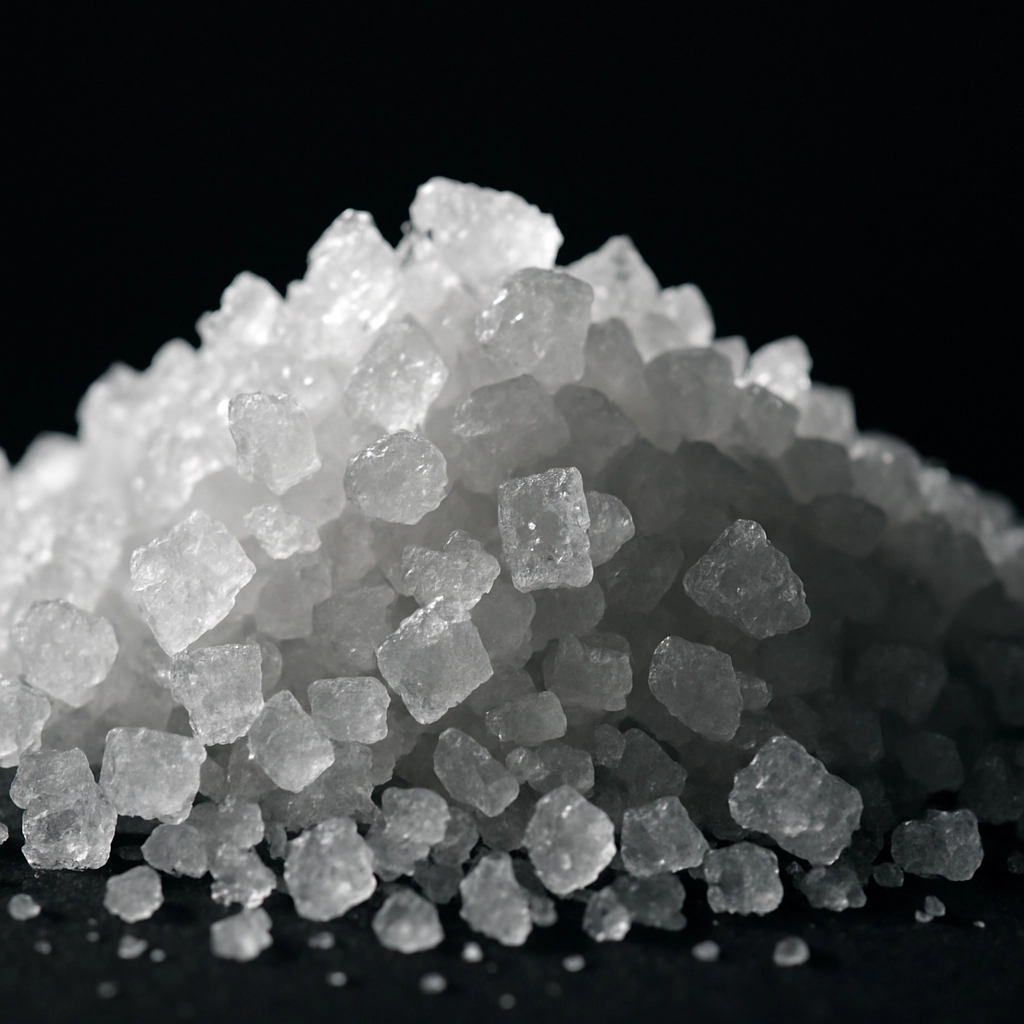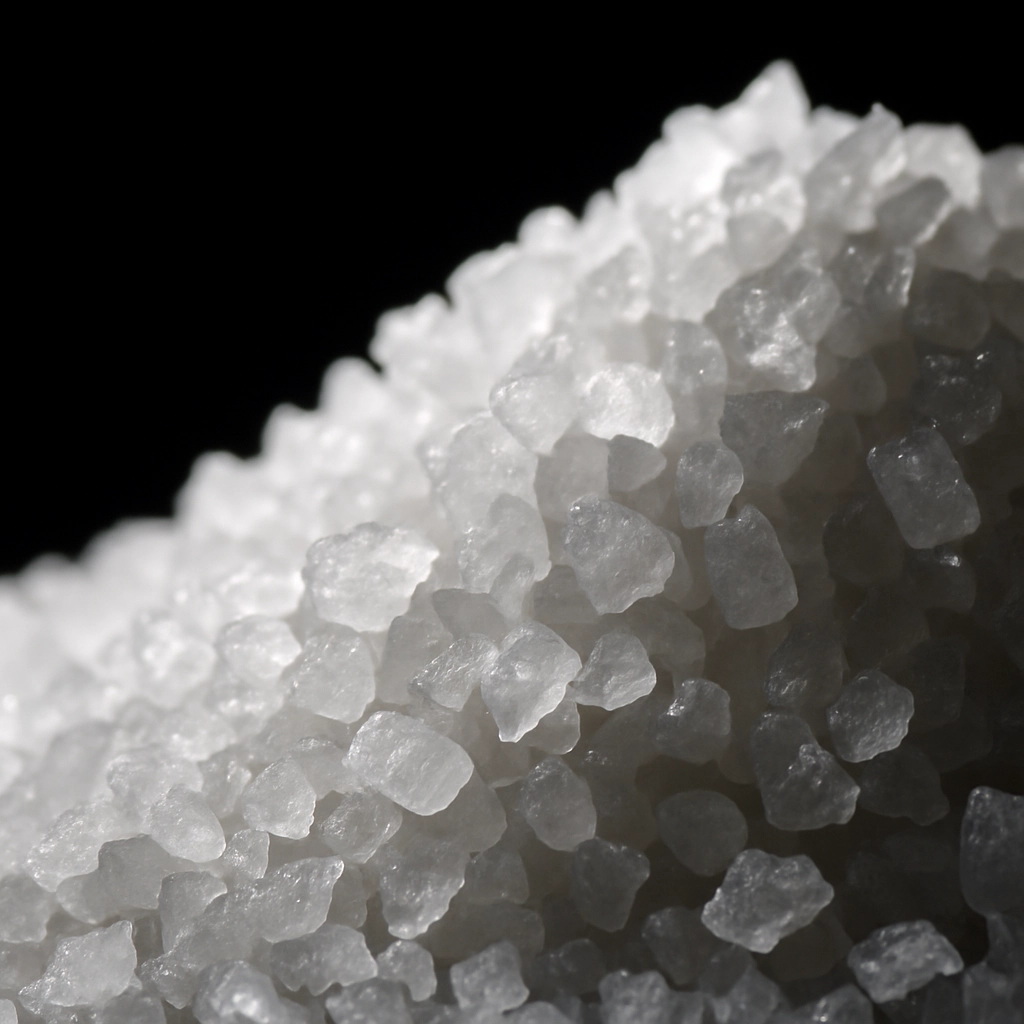


Industrial salt, due to its cost-effectiveness and stable chemical properties, is widely used in industries such as textiles, tanning, metal smelting, and water treatment. Unlike table salt, it does not require food-grade purity and is produced in various grain sizes to meet the specific needs of each process.
In the chemical industry, it serves as a raw material for the production of chlorine, caustic soda, and hydrochloric acid. Proper storage in dry, sealed conditions prevents moisture absorption and caking, preserving the physical quality of the product over time.


In the oil and gas industry, industrial salt is used to increase the density of drilling mud and prevent wellbore collapse. It also plays a key role in the production of paper, glass, and various polymers, such as polyester.
This salt is also effective in ion-exchange processes for water treatment. Despite containing mineral impurities, its grain size and shape are selected to suit specific applications. With high storage stability and affordable pricing, industrial salt has become an essential component in the supply chain of many industries.
Industrial salt is a type of salt with a lower purity than edible salt (edible salt typically has a purity of 99% or higher). The main differences between industrial and table salt are its lower purity, lack of refining, and absence of added iodine.
Industrial and mineral salts have numerous applications across various industries, including water and wastewater treatment, leather tanning, acid production, manufacturing of hygiene and cleaning products, and many others.
Iran possesses abundant salt mines and ranks among the top twenty producers of mineral salts in the world.
Industrial salt is a processed sodium chloride product in which food-grade impurities are not necessarily removed, and it is intended for non-food applications. This salt plays a key role in a wide range of industries, including the production of caustic soda, chlorine, hydrochloric acid, and sodium carbonate, oil refining, metal smelting, leather tanning, textiles, and water treatment.
In oil and gas drilling, adding industrial salt to drilling mud improves the density and stability of well walls. It is also used as an auxiliary material in glass manufacturing and the production of polymers such as polyester and plastics.
The variety of grain sizes allows industrial salt to be tailored for different applications, with powdered or crystalline forms selected according to project requirements. Proper storage in dry, moisture-free conditions ensures physical stability, prevents caking, and makes industrial salt a cost-effective and practical choice for many industries.

| Parameters | UNIT | Results |
|---|---|---|
| color | white | |
| Purity Nacl | % | 98.3 |
| Ca | % | 0.10 |
| Mg | % | 0.02 |
| Al | % | <0.004 |
| Fe | % | <0.001 |
| SiO₂ | % | 0.003 |
| SO₃ | % | 0.37 |
| NH₃ | % | <0.001 |
| Insoluble matter | % | 0.37 |
| Moisture | % | 0.03 |



WhatsApp us